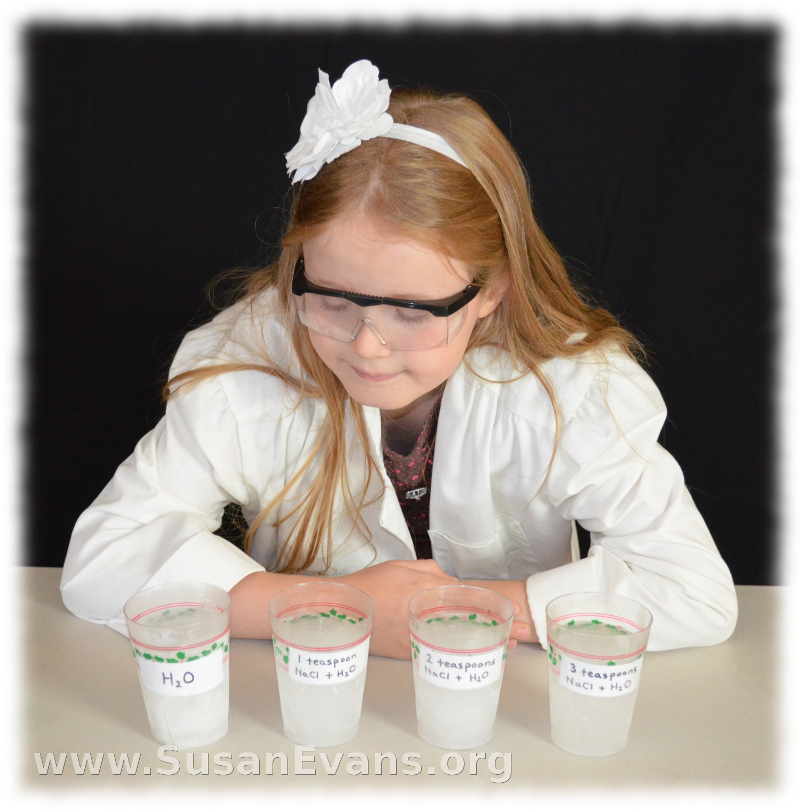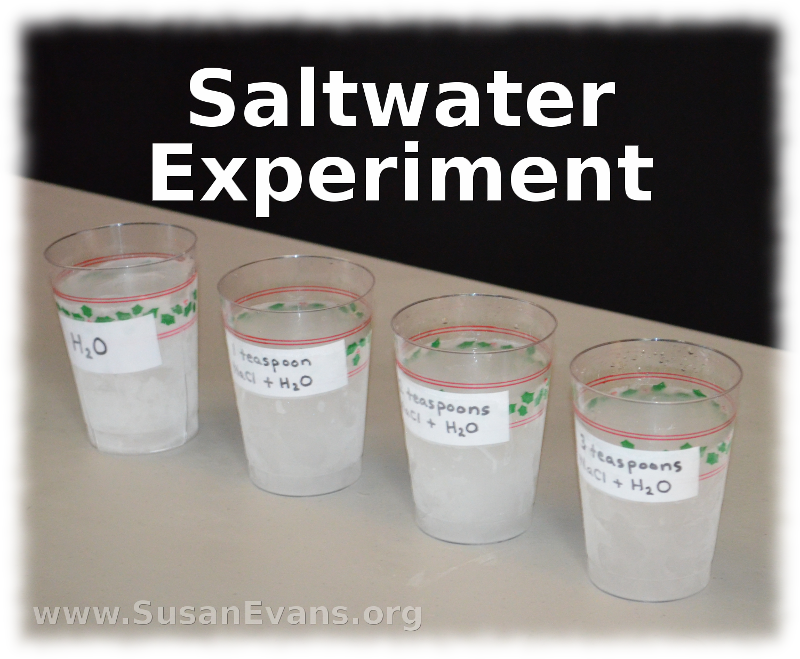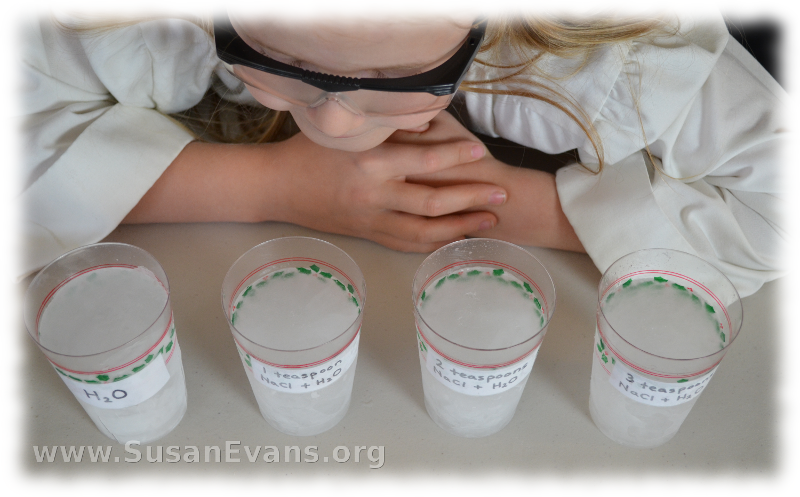This post contains affiliate links. I was compensated for my work in writing this post.
Today we are doing a fun saltwater experiment where we freeze water with different amounts of salt to see which solution freezes faster. Yes, it’s like a race to see which freezes first! This experiment is from Christian Kids Explore Chemistry by Bright Ideas Press, and we have been working our way through the fun experiments in this book.
First you will want to get four plastic cups and label them by writing on a piece of paper with a black marker. We attached the labels to the plastic cups with packing tape. These are the labels:
- Water
- 1 teaspoon salt + water
- 2 teaspoons salt + water
- 3 Teaspoons salt + water
Pour water into the four glasses and measure the correct amount of salt to put into each glass. Stir the solutions until the salt has dissolved. Now place them all in the freezer. If your freezer is a drawer like mine, you will need to lodge the glasses in place with a frozen lasagna or other large froze object. (Watch the video to see how I kept the glasses from falling over in the freezer.)
Which glass of water will freeze first?
 After two hours, the glass with only water in it was solid ice. The glass with one teaspoon of salt in the water was a little less solid than the first glass. You could scrape it like a snow cone because it wasn’t completely solid. The glass with two teaspoons of salt was even less frozen, and the one with three teaspoons of salt was not frozen at all when I broke through a thin layer of ice on the top. Under that thin layer of ice was liquid.
After two hours, the glass with only water in it was solid ice. The glass with one teaspoon of salt in the water was a little less solid than the first glass. You could scrape it like a snow cone because it wasn’t completely solid. The glass with two teaspoons of salt was even less frozen, and the one with three teaspoons of salt was not frozen at all when I broke through a thin layer of ice on the top. Under that thin layer of ice was liquid.
The more salt that you have in the water, the longer it takes to freeze. After four hours, all the glasses were more frozen, but the one with three teaspoons of salt was still quite liquid.
After 24 hours, we checked the glasses again, and all of them were finally solid. Take a look:
So what does this mean? Salt lowers the temperature at which water will solidify, so when you are making ice cream, for example, you can put salt on the ice to keep the ice cold longer.
You can also use salt to melt snow in your driveway in the winter.
Tags: Bright Ideas Press, chemistry, Christian Kids Explore Chemistry, hands-on science, Homeschooling, science






This is a perfect example of hands on science – minimal cost and uses materials available in any household. Did you also measure the temperature in your freezer? A variation may have been to use both a chest freezer and a freezer part of a refrigerator (measuring the temperature in both first to see if there was a substantial difference) and seeing what difference the temperatures made in the rate of freezing.
That’s a great idea! The temperatures in the two freezers would probably be different and affect the rate at which the liquids froze.
Oh, I will have to check this book out. My kids would love doing something like this. (Of course, with eight kids, the hard part will be making enough room in the freezer!)
As long as you have space for 4 cups, you can do the experiment once, and the kids can enjoy it together. It would be funny if all 8 kids each had 4 cups: that would be 32 cups! Sounds like a fun math problem!
Another good science idea, stumbling this!
Thanks! My kids really enjoy science!
Awesome. Your science ideas are brilliant and I totally need to do more of them with my kids!
What a cool experiment! My kids will love doing this. Pinning for later thanks!
My daughter did this experiment last year. Nice presentation of it you gave here.